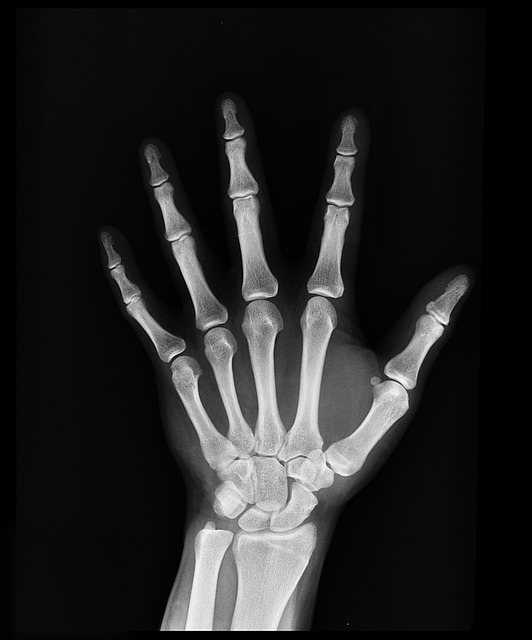Do you want to become a Medical Assistant in the Netherlands?
In the Netherlands, the role of a medical assistant is gaining attention as an entry point into the healthcare sector. Training programs are generally designed to combine theory with practical skills, helping participants understand patient interaction, administrative duties, and clinical support. This article gives an overview of how the profession is described, what typical training paths may involve, and which aspects people often consider when exploring a career in this field.

What does Medical Assistant training involve in the Netherlands?
Training programs in the Netherlands usually combine classroom theory with supervised practical experience to prepare students for the multifaceted medical assistant role. Most programs follow a structured curriculum approved by Dutch healthcare education authorities to ensure graduates meet industry standards. These programs typically last between 1-3 years, depending on whether you pursue a basic qualification (MBO level 2) or a more advanced diploma (MBO level 4).
The theoretical component covers essential medical knowledge including anatomy, physiology, medical terminology, and healthcare ethics. Students also learn about the Dutch healthcare system’s structure, electronic medical record systems, and healthcare regulations specific to the Netherlands. The practical component involves hands-on training in clinical settings, where students apply their knowledge under supervision, gradually developing competence in assisting with medical procedures.
What skills will you develop during Medical Assistant training?
Participants may learn skills related to patient communication, administrative support, and basic clinical tasks during their medical assistant training. Communication skills receive particular emphasis, as medical assistants often serve as the first point of contact for patients. Training programs teach appropriate medical terminology, active listening techniques, and how to explain medical information clearly to patients from diverse backgrounds.
On the administrative side, students learn appointment scheduling, medical record management, insurance processing, and correspondence handling - all adapted to the Dutch healthcare environment. Clinical skills development includes vital signs measurement, specimen collection, medication preparation, sterilization techniques, and assisting with examinations and treatments. Many programs also incorporate training in specific medical software used throughout Dutch healthcare facilities to ensure graduates can immediately contribute in modern healthcare settings.
How can you access Medical Assistant programs in the Netherlands?
Informational sources often describe admission requirements, program length, and certification options for aspiring medical assistants in the Netherlands. The primary pathway is through MBO (Middelbaar Beroepsonderwijs) vocational institutions, which offer dedicated medical assistant programs at various levels. To enter these programs, candidates typically need a VMBO diploma (preparatory secondary vocational education) or equivalent qualification.
Program lengths vary from 1-3 years depending on the level pursued, with part-time options available for those already working in healthcare. Several respected institutions across the Netherlands offer these programs, including ROC (Regional Education Centers) locations in major cities like Amsterdam, Rotterdam, Utrecht, and Eindhoven. Many schools conduct their programs in Dutch, though some international-focused institutions offer English-language options, particularly in metropolitan areas.
What is the role of Medical Assistants in Dutch healthcare?
Articles highlight the role of medical assistants as a bridge between patients and healthcare professionals in the Netherlands’ highly regarded healthcare system. Medical assistants typically manage the patient journey from initial reception through the appointment process, helping maintain smooth clinical operations. They often handle preliminary patient assessments, prepare examination rooms, and assist doctors or nurses during procedures.
In the Dutch system, medical assistants commonly work in huisartsenpraktijken (general practitioner practices), where they perform both front-office and clinical support functions. They also find positions in ziekenhuizen (hospitals), poliklinieken (outpatient clinics), and specialized practices. Their versatility makes them particularly valuable in the Dutch healthcare system, which emphasizes efficiency and patient-centered care. The role requires cultural sensitivity and adaptability, as assistants frequently interact with the Netherlands’ diverse population.
What career development opportunities exist for Medical Assistants?
Career paths are commonly presented from entry-level positions to opportunities for specialization in the medical assistant field. New graduates typically start in general medical assistant roles, gaining valuable experience across different aspects of healthcare support. With experience, medical assistants can specialize in areas such as cardiology, dermatology, ophthalmology, or pediatrics, often receiving additional training specific to these fields.
Some medical assistants pursue further education to become physician assistants, nurse practitioners, or healthcare administrators. Others develop expertise in specific medical technologies or procedures, becoming valuable specialists within their organizations. The Dutch healthcare system also offers opportunities for medical assistants to take on team leadership roles or move into healthcare education after gaining substantial experience. Professional development is encouraged through continuing education courses and specialized certifications that enhance career prospects and earning potential.
This article is for informational purposes only and should not be considered medical advice. Please consult a qualified healthcare professional for personalized guidance and treatment.




